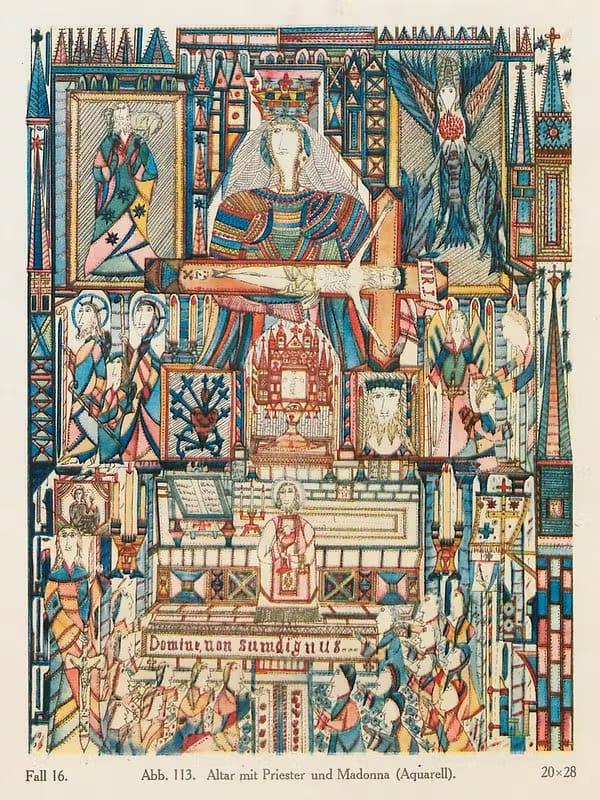Who Gets to Relax, Anyway?
my fanciest coffin(!)
Books
Civilized to Death: The Price of Progress
Christopher Ryan
Competes with error correction as foundry of morals
The feeling appropriate to an infant in arms is his feeling of rightness, or essential goodness. The only positive identity he can know, being the animal he is, is based on the premise that he is right, good, and welcome.… There is no other viable way for a human being to feel about himself; all other kinds of feeling are unusable as a foundation for well-being. Rightness is the basic feeling about self that is appropriate to the individuals of our species.… A person without this sense often feels there is an empty space where he ought to be.
ironically aligns with deep work four hours from more recent study of human willpower reserves.


Anthropologists long ago established that almost without exception, hunter-gatherers rarely “work” more than three or four hours per day, and these activities are “integrated with rituals, socialization, and artistic expression to a degree unknown to most people in Western societies,” as John Gowdy explains.
the great works of the immortal king ozymandius have been jammed in the office printer, unfortunately
sc: i keep asking leda to fix that, but she always mumbles an excuse about being almost at a breakthrough of some sort
In our world, work is ubiquitous. The server asks me if I’m still “working on” my salad. We don’t exercise, we “work out.” Learning about ourselves in therapy is referred to as “doing the work.” “What are you working on?” has become a way of asking who you are. Yet few of us are lucky enough to work in ways that actually align with who we are. We roll in, cup of stimulant in hand, shuffle papers, try to look busy and stay awake, fight the hopelessness, then go home and drink too much. Show up, punch in, tune out. In his semiautobiographical novel, The House of the Dead, Fyodor Dostoyevsky wrote, “If one wanted to crush and destroy a man entirely, to mete out to him the most terrible punishment… all one would have to do would be to make him do work that was completely and utterly devoid of usefulness and meaning.” But from factory floor to corporate boardroom, useless, meaningless work is standard-issue in our world. And you’re expected to be grateful to have it!
agreed, 100%. freedom is not priceless, it's price is just entirely unaffordable.
In any case, prosperity isn’t the key to life satisfaction. Italian economist Paolo Verme found the variable “freedom and control” to be the most significant predictor of self-reported quality of life, by far. The kind of freedom that leads most directly to happiness, in other words, is the freedom not to get up to the ringing of an alarm five days a week, not to be obligated to shave and put on a tie (or bra) if you don’t feel like it, not to pretend to respect someone you don’t just because he’s your “boss” just so you’ll have enough money to keep the bill collectors at bay for another month.
my mercedes benz coffin goes zoom!!
He who dies with the most toys wins. —Malcolm Forbes
The ponzi of “property”. Wealth accumulates because of course it does.
The more we understand what human life was like before agriculture, the more civilization looks like a pyramid scheme. Disparities of wealth and power were among the first things to emerge when people settled into villages and towns. Someone had to make decisions about who got how much of what, and when. Someone had to organize the sowing and the reaping, the protection and trading of land and livestock. Once wealth emerged, so did an elite class that was naturally tempted to benefit further from their privileged position.
he can only really spend that money on iphones though, so it all nets out
In 2011, Apple’s Tim Cook was paid $378 million in salary, stock, and other benefits—6,258 times the wage of the average employee at Apple. The richest eighty-five people in the world control more wealth than the poorest half of the planet’s population. Let that sink in for a moment. Eighty-five human beings who fart in bed just like you and me control more wealth than 3.5 billion other people—many of whom live in desperate poverty.
i can believe anything if it makes me look like the good guy

Many of the great robber barons of the twentieth century were fond of twisting Darwin’s theories to imply that their wealth was simply the logical result of their innately superior “fitness,” and was therefore as natural and inevitable as any other form of predation upon the weak by the strong.
How much does a Rolex cost? It doesn’t matter as long as you can’t afford one
“The world’s most primitive people have few possessions, but they are not poor. Poverty is not a certain small amount of goods, nor is it a relation between means and ends; above all it is a relation between people. Poverty,” Sahlins declared, “is a social status. As such it is the invention of civilization.”
are you a cop? because you have to tell me if you're a cop
People who say the system works work for the system. —Russell Brand
People in music videos (like Justin Beiber's Yummy video for example) seem subconsciously unaware of their sadness. I cant help but feel pity for those ludicrously large LA mansions where the people inside wear a mask that is so status focused.

If poverty is a relative concept, so is wealth. ==Counterintuitively, in the civilizational game, the biggest winners are often total losers--. I’m not arguing that the criminally skewed wealth distribution in the modern world should be excused, forgiven, or ignored. And I’m certainly not forgetting the brutal fact that while billions of people scavenge for their next meal or some clean water, a few live in hilltop mansions pouring last night’s flat champagne down the drain.
there has to be a cap for buying crap. just watch any mid 2000s mtv show and how much money they are shelling out on ipod nanos and blackberries.

Money is like food, rain, wives, husbands, kids, cats, sex, TV stations, and decorative pillows in that more than enough is too much. But because we’re so indoctrinated to believe that money is the golden exception to the rule of diminishing returns, it’s very difficult to know when to stop striving for more, to take the money and run.
And again: "How much does a Rolex cost? It doesn’t matter as long as you can’t afford one"
The quality of most things has an upper limit, which is normally reached rather quickly. If not, what you’re seeking probably has less to do with the product in question than with some psychological itch you’ve been convinced that product can scratch. A watch tells the time; a $20,000 Rolex tells people you’ve got issues.
llms are less than five years old and people are already bored by math that can literally do language smh
People are consistently surprised by how quickly the abnormal becomes normal, the extraordinary becomes ordinary. When people say, ‘I could never get used to that,’ they are almost always wrong.”
Napoleon: A Life
Andrew Roberts
"i am the head of the spider and you are the legs. natural law dictates that the legs follow the head. my rules are absolute, but my life is not."
Years after the campaign, Napoleon’s toymaker made a miniature carriage that was harnessed to four mice, in order to amuse some children with whom the Emperor was staying. When it wouldn’t move, Napoleon told them ‘to pinch the tails of the two leaders, and when they started the others would follow’.
gigachad
‘Colonel Maupetit, at the head of the 9th Dragoons, charged into the village of Wertingen,’ he wrote in a report of a fight in which Murat and Lannes defeated an Austrian force on October 8; ‘being mortally wounded, his last words were: “Let the Emperor be informed that the 9th Dragoons have showed themselves worthy of their reputation, and that they charged and conquered, exclaiming ‘Vive l’Empereur!’
pretty based line for the micromanger
When taking the Iron Crown and putting it on my head, I added these words: “God gives it to me; woe betide any who touches it.” I hope that will be a prophecy.’ The Iron Crown of Lombardy, a heavy oval band of gold containing metal supposedly from one of the nails of the True Cross, had been worn by every Holy Roman Emperor since Frederick Barbarossa in 1155.
True G's move in silence

Over three days that June Napoleon sent Eugène no fewer than sixteen letters on the art of ruling – ‘Know how to listen, and be sure that silence often produces the same effect as does knowledge’, ‘Do not blush to ask questions’, ‘In every other position than that of Viceroy of Italy, glory in being French, but here you must make little of it’ – even though the actual day-to-day running of the country continued to be undertaken by Melzi, the former vice-president of the Italian Republic, whom Napoleon had refused to allow to retire despite endless complaints about his gout.
napoleon was so clever with it, on god
He imposed a total news blackout about troop movements, telling Fouché to ban all newspapers ‘from mentioning the army, as if it no longer exists’. He also came up with an idea for tracking enemy mobilization, ordering Berthier to get a German-speaker ‘to follow the progress of the Austrian regiments, and file the information in the compartments of a specially made box … The name or number of each regiment is to be entered on a playing-card, and the cards are to be changed from one compartment to another according to the movements of the regiments.’
gogogogogogogogo

On the evening of October 6 Napoleon pushed on to Donauwörth, in the words of Ségur, ‘in his impatience to see the Danube for the first time’. The word ‘impatience’ recurs often in Ségur’s narrative, and might almost be considered the most constant of all Napoleon’s military, indeed personal, traits. Of those closest to him on this campaign – Berthier, Mortier, Duroc, Caulaincourt, Rapp and Ségur – all mention his great impatience throughout, even when his plans were ahead of schedule.
this napoleon guy should have a movie made about him
In the course of the fighting a grenadier of the former Army of Egypt lay wounded on his back in the pelting rain crying ‘Forwards!’, so Napoleon, who recognized him,== took off his own cloak and threw it over him==, saying: ‘Try to bring this back to me, and in exchange I will give you the decoration and the pension that you have so well deserved.’
yet another cute anecdote!
On October 16 Ségur found Napoleon in a farmhouse in the hamlet of Haslach near Ulm, ‘dozing by the side of a stove, while a young drummer was dozing also on the other side’. Sometimes Napoleon’s naps would last only ten minutes, but they would leave him re-energized for hours. Ségur recalled the incongruity of seeing how ‘the Emperor and the drummer slept side by side, surrounded by a circle of generals and high dignitaries, who were standing while waiting for orders’.
Articles
In Praise of Idleness, by Bertrand Russell | Harper's Magazine
Bertrand Russell
a mathematician on parade

Before advancing my own arguments for laziness, I must dispose of one which I cannot accept. Whenever a person who already has enough to live on proposes to engage in some everyday kind of job, such as school-teaching or typing, he or she is told that such conduct takes the bread out of other people’s mouths, and is, therefore, wicked. If this argument were valid, it would only be necessary for us all to be idle in order that we should all have our mouths full of bread. What people who say such things forget is that what a man earns he usually spends, and in spending he gives employment. As long as a man spends his income he puts just as much bread into people’s mouths in spending as he takes out of other people’s mouths in earning. The real villain, from this point of view, is the man who saves. If he merely puts his savings in a stocking, like the proverbial French peasant, it is obvious that they do not give employment. If he invests his savings the matter is less obvious, and different cases arise.
Taxes! yah

One of the commonest things to do with savings is to lend them to some government. In view of the fact that the bulk of the expenditure of most civilized governments consists in payments for past wars and preparation for future wars, the man who lends his money to a government is in the same position as the bad men in Shakespeare who hire murderers. The net result of the man’s economical habits is to increase the armed forces of the State to which he lends his savings. Obviously it would be better if he spent the money, even if he spent it on drink or gambling.
i love this
But, I shall be told, the case is quite different when savings are invested in industrial enterprises. When such enterprises succeed and produce something useful this may be conceded. In these days, however, no one will deny that most enterprises fail. That means that a large amount of human labor, which might have been devoted to producing something which could be enjoyed, was expended on producing machines which, when produced, lay idle and did no good to anyone. The man who invests his savings in a concern that goes bankrupt is, therefore, injuring others as well as himself. If he spent his money, say, in giving parties for his friends, they (we may hope) would get pleasure, and so would all those on whom he spent money, such as the butcher, the baker, and the bootlegger. But if he spends it (let us say) upon laying down rails for surface cars in some place where surface cars turn out to be not wanted, he has diverted a mass of labor into channels where it gives pleasure to no one. Nevertheless, when he becomes poor through the failure of his investment he will be regarded as a victim of undeserved misfortune, whereas the gay spendthrift, who has spent his money philanthropically, will be despised as a fool and a frivolous person.
the middle of the middle of the middle of management (project managers)

First of all: what is work? Work is of two kinds: first, altering the position of matter at or near the earth’s surface relatively to other such matter; second, telling other people to do so. The first kind is unpleasant and ill paid; the second is pleasant and highly paid. The second kind is capable of indefinite extension: there are not only those who give orders but those who give advice as to what orders should be given. Usually two opposite kinds of advice are given simultaneously by two different bodies of men; this is called politics. The skill required for this kind of work is not knowledge of the subjects as to which advice is given, but knowledge of the art of persuasive speaking and writing, i.e. of advertising.
Bertrand Russell was such an amazing wordsmith
Throughout Europe, though not in America, there is a third class of men, more respected than either of the classes of workers. These are men who, through ownership of land, are able to make others pay for the privilege of being allowed to exist and to work. These landowners are idle, and I might, therefore, be expected to praise them. Unfortunately, their idleness is rendered possible only by the industry of others; indeed their desire for comfortable idleness is historically the source of the whole gospel of work. The last thing they have ever wished is that others should follow their example.
I don't think its so much the work itself from the technology, it's the autonomy to be creative, to "retire" in areas of life that don't help you, like laundry, or deciding what coffin you'll be buried in.
== Leisure is essential to civilization==, and in former times leisure for the few was rendered possible only by the labors of the many. But their labors were valuable, not because work is good, but because leisure is good. And with modern technic it would be possible to distribute leisure justly without injury to civilization.
Watching Pride and Prejudice on repeat be like
The idea that the poor should have leisure has always been shocking to the rich. In England in the early nineteenth century fifteen hours was the ordinary day’s work for a man; children sometimes did as much, and very commonly did twelve hours a day. When meddlesome busy-bodies suggested that perhaps these hours were rather long, they were told that work kept adults from drink and children from mischief. When I was a child, shortly after urban working men had acquired the vote, certain public holidays were established by law, to the great indignation of the upper classes. I remember hearing an old Duchess say, “What do the poor want with holidays? they ought to work.” People nowadays are less frank, but the sentiment persists, and is the source of much economic confusion.
Commonplace Daily Digest is a daily newsletter with highlights from my reading and thoughts. The markdown is automatically generated by this repo.




